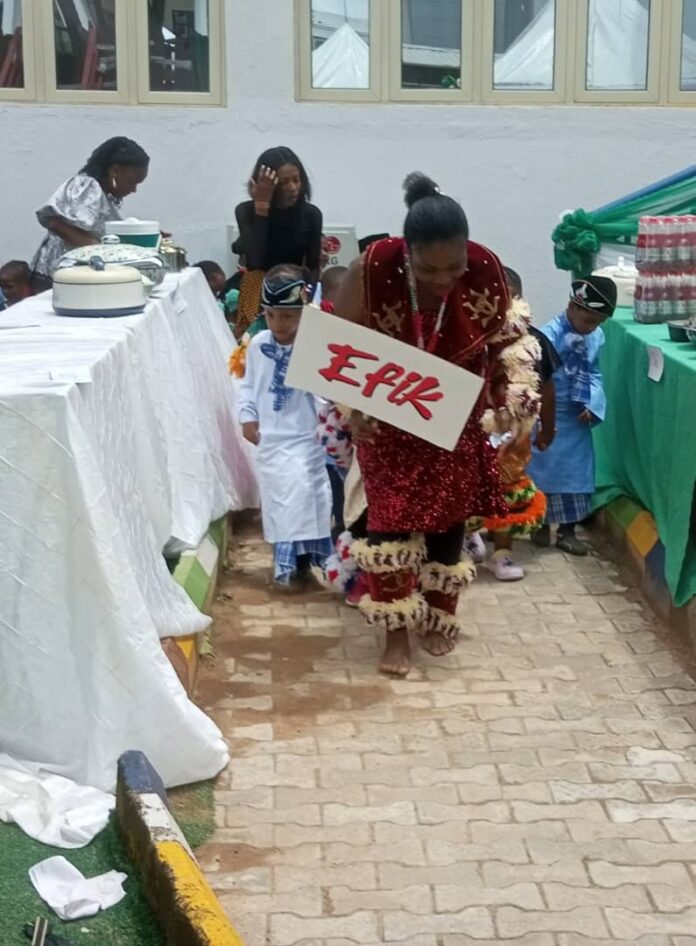By ABAH ADAH, Abuja
Parents and other stakeholders have made case for the inclusion of local languages in the curriculum, especially at the primary school level, as a means of perpetuating and promoting Nigeria’s rich diverse cultural values.
The call was made at an event to commemorate Nigeria’s 64th independence anniversary with the theme: “Nigeria @ 64: Journey to the South-South” organised by Blossomhall School at the weekend in Abuja.
It was a mixed feeling of excitement and nostalgia for parents and invited guests as the pupils treated them to various cultural renditions, dances, and exhibition of cuisines of the various ethnic groups across the South-South geopolitical zone of Nigeria.
AljazirahNigeria learnt that the national birthday is marked by the school annually with the cultures inherent in each of the six geopolitical zones of the country showcased in their turns. Last year it was the Middle-Belt’s cultural heritage that was in focus.
Speaking, the Mother of the Day at the occasion, Mrs Alanyingi Silver, expressed delight that she made out time to attend the event as it afforded her the opportunity to witnessed the lavish display of South-South culture by the pupils, adding that with all paternal, maternal, and matrimonial background in the zone she is a South-Southerner to the core.
Recalling that she grew up speaking some South-South native languages even better than her very own, to the extent that she was the leader of the cultural troupe during her primary school days, Mrs Sylva said, “This event is home for me.”
Stressing the importance of parents ensuring that their children speak their native languages, she advocated inclusion of local languages in school curriculum, urging Nigerians not to give up on the country, but to continue to pray for its recovery while playing their roles as citizens patriotically.
In the same vein, while making her goodwill remarks earlier, one of the special guests, Mrs Susan Horstall, stressed the need for parents to cultivate the habit of encouraging their children to learn to speak their local languages as a gateway to their cultural values so that as they grow, they will not derail.
She said she was so delighted to part of the occasion, having relished the display of what she described as rich cultural heritage of the South-South as proud indigene of the area.
Joining the call the call also, the Special Assistant to the President on Print Media, Abdulaziz Abdulaziz, said it was sad that certain languages were already going extinct.
Abdulaziz urged Nigerians to play their part at individual levels, no matter what they think about the country, to ensure that the country attains the desired greatness.
“Let’s be the change that we want to see”, he said.
Delivering her welcome address earlier, the director and proprietress of the school, Mrs Remi John, explained that the purpose of the programme was to celebrate Nigeria.
She stressed the need for Nigerians to always be proud of their culture and the country, tasking all citizens to be patriotic in spite of whatever they might consider wrong because it is the only place they could call their own with a sense of pride.
“Like I always tell people, even if you ‘japa’, speak their language, and do everything like them in a foreign land, they will never accept you as one of their own,” she said, urging the promotion of local content in the educational curriculum.
“Let’s be always proud of what we have and are. When you go to America or Britain, people hang the flag of their country in their homes, but I have never seen anyone do such in Nigeria. That is what today’s celebration is all about.
In her feedback remarks, Jennsse Haruna, commended the school management for bringing the pupils up culturally and academically.
She however advocated for the introduction of local languages into the curriculum whereby, at least, the major languages would be made optional for the children.
The ethic groups of Ogoni, Kalabari, Bini, Urhobo, Anioma Efik, Ijaw, Ikwere, Ibibio, Oron, Anang, Eket, all from the South-South, were represented.





